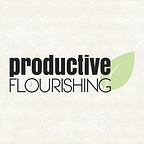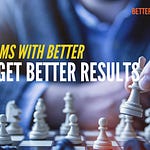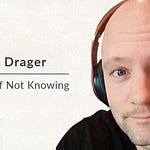Sometimes, we’re in a business or a career, and it’s not suiting us for one reason or another, but we’re not sure in which new direction to move. In this episode, Charlie and Breanne explore what to do when you need to make a shift, but you’re not sure what to shift into. They focus on their work with growing other businesses, as well as the growing pangs they are each going through in their own lives. Breanne is the founder of MNIB Consulting, a business strategist, and has been a regular guest on the Productive Flourishing podcast.
Key Takeaways:
[2:45] - In our work, something may be missing and we know there’s some shift that needs to happen, but we’re not sure what. From the outside, it may look like we have it all, when in reality there are things that aren’t quite right, and things that could be better.
[5:40] - There are a lot of purpose-centric questions being asked these days, and across people in different industries, there has been a lot of indecision and uncertainty. When something is up in the air, it’s a good time to sit back and evaluate if that’s really what you want to be doing with your life.
[8:15] - One of the focuses of Breanne’s meditations for martial arts is that all we have is the present; what is the past has already happened, and what’s going to happen in the future, we can’t control, but we can decide what we’re going to do in this moment. At the same time, in our day-to-day lives, we have to recognize that what we do in the present will impact the future.
[10:55] - Our world is a smaller part of something much larger, and as we move through our journey, there may be things ahead that we can’t see yet. When we come to these points on our journey where we may be moving into something new and we’re not sure that’s what we want to do, we can evaluate our highest and best use to help guide our decisions.
[15:05] - As Breanne has grown her business team, the larger staff has allowed her to free up some of the responsibilities she was previously handling. One thing she has noticed is that she’s been falling back into some old responsibilities in her job. Now, she is evaluating the best ways to use her free time.
[18:40] - Charlie has found that many of the projects he wants to be working on are long-term, and it’s been about finding small projects or business tasks that provide more immediate satisfaction of completion. Sometimes, our highest and best use might be doing a task we would really rather not be doing, but it is what is needed at the time.
[21:00] - As humans, we have needs for connection, and relation, and social, spiritual and physical needs. There is an interesting cultural phenomenon that it’s our business’s job to meet those needs. This has the potential to create a bit of a problem if your work and social circles overlap too much.
[24:20] - Back in the summer, Charlie started a new productivity experiment for himself. He set a limit of 8 hours a day of work, and writing and creative work counted. The second rule was to be done by 5:00pm. The last rule was no admin work in between the meetings. This experiment has allowed Charlie to evaluate how his work flow affects the amount of work the team has to take on, and make some positive changes that made the work manageable for everyone.
[27:25] - On Charlie’s team, they use the acronym “WBM,” which stands for “who besides me.” This helps identify the people who have the skills and the time to take on a project, and allows time to determine if it is a priority project. When this creates space in our day, we have to be intentional about how we’re spending and using that time.
[31:54] - Sometimes, with this new free time, it might be easy to fall back into patterns of work, but that could end up creating more work for our teams and ourselves. Sometimes the best thing to do is nothing. Learning to do nothing can enlighten the things we should be doing, and ask where we’re going next.
[38:30] - In our careers and our businesses, we don’t often have conversations about sufficiency. Sometimes things are really good, and stretching for immediate growth is not always necessary. Sometimes, where we are can be enough.
[42:25] - Highest and best use is about efficiency, and trusting that an efficient approach will accomplish what it needs to accomplish. Early on in a career, you may have to try many different approaches to figure out what is most efficient. As the business grows and matures, it’s about knowing which approaches to use and when.
[44:46] - Breanne’s challenge for listeners from the book she’s currently reading, The Power of Receiving: Get three pages of paper and fill the pages with “I want” statements. Explore what it is you actually want; don’t limit yourself!
Mentioned in This Episode:












